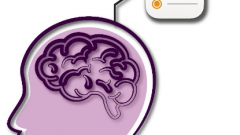Making technology work after acquired brain injury: reasons for use, importance, and psychosocial impact of technology after acquired brain injury
Published 16th September 2025
Purpose: To understand how mainstream technology may support rehabilitation needs after acquired brain injury (ABI), this research aimed to investigate reasons, importance, and psychosocial impact of technology use after ABI and explore perceived benefits, challenges, and facilitators.
Method: 66 individuals with ABI (59% male) attending outpatient brain injury rehabilitation and 60 controls without neurological injury (47% male) completed a survey regarding technology use. Following their rehabilitation, semi-structured interviews were conducted with a purposive sample (n = 20) of individuals with ABI and were analysed using content analysis.
Results: Total reasons for frequent technology use did not significantly differ between pre- and post-injury, although participants with ABI rated technology as significantly more important and used technology more frequently for medical and rehabilitation appointments post-injury. Total reasons for frequent technology use, perceived importance and psychosocial impacts did not significantly differ between the ABI and control samples. However, a significantly lower proportion of participants with ABI used technology frequently for productivity, personal affairs, general health and wellness and navigation (44-74%) than controls (68-100%, p <. 01). The qualitative analysis identified an overarching theme of making technology work for me after ABI, depicting individuals’ experiences of how it works and when it works optimally to meet their everyday needs.
Conclusion: Technology use may change after ABI, as individuals strive to achieve optimal balance between personal investment in technology and benefits for supporting everyday functioning. Key implications relate to the need for rehabilitation clinicians to tailor support for technology use to individuals’ lifestyle and preferences.
IMPLICATION FOR REHABILITATION
Individuals with ABI perceive technology to be broadly beneficial to support everyday functioning; however, it may also present numerous barriers such as learning and cognitive challenges, technical and accessibility issues.
It may be beneficial for clinicians to support individuals with ABI to develop technology self-regulation skills to achieve an optimal balance between personal investment and benefits in daily life.
It is recommended that clinicians support individuals with ABI to use the combination of technologies that best fit their preferences and lifestyle needs, providing the scope to learn novel technologies.
Project: Scoping the technology landscape of Day Hospital Brain Injury Rehabilitation Services
Citation
Ownsworth, T., Williams, C., Griffin, J., Seeney, R., Bell, R., Gibson, E., … Mitchell, J. (2025). Making technology work after acquired brain injury: reasons for use, importance, and psychosocial impact of technology after acquired brain injury. Disability and Rehabilitation: Assistive Technology, 1–18. https://doi.org/10.1080/17483107.2025.2559191
Authors
Publication Type
Journal Article
Back to Project


